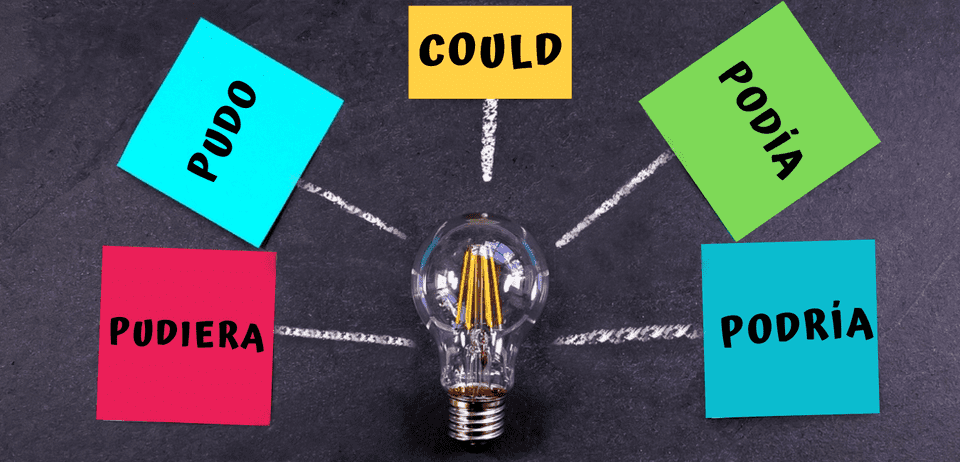Lesson
“Could” is one of the most common and versatile modal verbs in English. This word can be used to ask for something nicely, to express ability in past tense, and also to discuss probability.
“Poder” is the Spanish verb we use to translate “could”, and its conjugation will depend on the tense and the communicative function, which means “could” might appear in five different tenses: simple present, simple past, past progressive, conditional, and past subjunctive. Let’s see how to use it correctly in all of them.
Note: While in English, to express ability or possibility we have the options of "can / could" and "to be able to", in Spanish the verb "poder" is generally used for both of these expressions.
“Could” in conditional: podría
“Poder” is used in the conditional to:
Ask formal questions and give advice in a polite way. For example:
- Podrías tomar limonada si tienes sed.You could have a lemonade if you’re thirsty.
- ¿Podría traerme la carta, por favor?Could you bring me the menu, please?
Present simple tense of “poder” can also have the same communicative intention:
- ¿Puede traerme la carta, por favor?Could you bring me the menu, please?
Express probability in future and past tense:
In the future:
- Yo podría llegar a las 8 esta noche.I could be there tonight at eight.
In the past: ("poder" in conditional simple + "haber" + participle)
- Él podría haberle dicho la verdad.He could have told her the truth.
Speak about hypothetical situations:
- Si tuviera más dinero, podría comprar ese carro.If I had more money, I would be able to buy that car.
“Could” in simple past: pude
This conjugation is used to:
Talk about an action in the past that took place after an attempt.
- Él no pudo abrir el frasco de la salsa.He couldn’t open the sauce jar.
Express an action that happened at a specific moment - a one-time-action.
- Ayer no pude hablar con mi mamá porque estuvo ocupada todo el día.I couldn’t talk to my mom yesterday because she was busy all day.
“Could” in imperfect past tense: podía
“Poder” in the imperfect past expresses:
Ability in the past:
- Cuando era niña podía bailar ballet.When I was a little girl I could dance ballet.
Past continuous actions or habits::
- Ella no podía pasar suficiente tiempo con su papá porque él viajaba cada fin de semana.She couldn’t spend enough time with her dad because he would travel every weekend.
Granted and denied permissions in the past:
- Me mamá me dijo que no podía ir a la fiesta.My mom told me I couldn’t go to the party.
“Could” in past subjunctive: pudiera
This conjugation is used when an expression requires the subjunctive, but is in the past:
- Nosotros esperábamos que pudieras venir a visitarnos.We were hoping you could come to visit us.
“Pudiera” is also used in second conditional sentences in the if-clause.
- Si pudiera tener un super poder, me gustaría ser invisible.If I could have a super power, I’d like to be invisible.
It’s also used to make less categorical statements, to soften them.
- (There’s a slight possibility for them to change their minds)Es mejor hablar con ellos rápido porque pudieran cambiar de opinión.It’s better to talk to them fast because they might change their minds.
With the purpose of softening an expression, conditional "podría" can also be used.
- Es mejor hablar con ellos rápido porque podrían cambiar de opinión.It’s better to talk to them fast because they might change their minds.
"Maybe" / “Could be”
If we answer a question with "maybe" or “could be” to express possibility, depending on the certainty level, we can use poder in the present indicative (highest certainty), conditional, or past subjunctive (lowest certainty).
- ¿Tú crees que ellos no vinieron a trabajar porque estaban enfermos?Do you think they didn’t come to work because of being sick?Pudiera ser./ Podría ser. / Puede ser.It could be.
Now that you've learned about how to express "could" in Spanish, why not practice by checking out our exercises?

